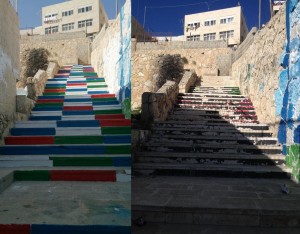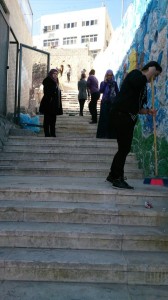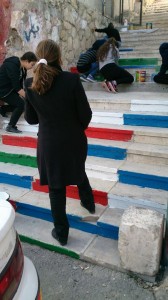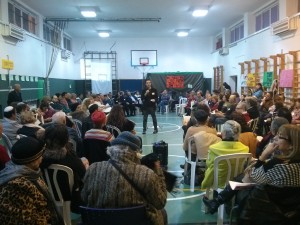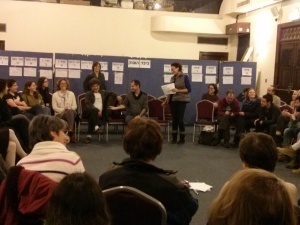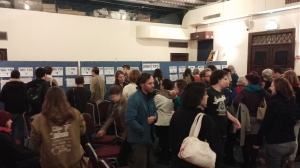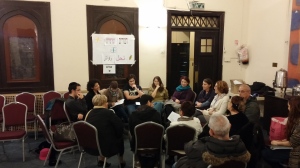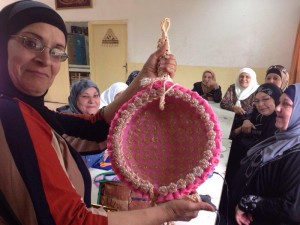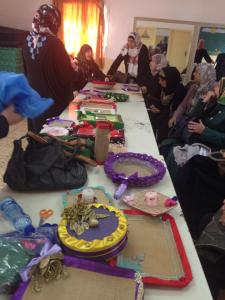MiniActive Youth – Now Empowering Teens as Well
We never ceased to be amazed by the MiniActive project – the scope and volume of their activity (some 1,000 activists, 7,800 subscribers on their Facebook page), what they’ve been able to accomplish, all are the subject of our admiration.
Until a few days ago, MiniActive was only for women above 18 years old (up to 70 and beyond…). Last week we started our first groups of teenagers, “MiniActive Youth“. The program includes training on how to be pro-active in changing one’s immediate environment. They will assist their mothers (who are MiniActive volunteers) in identifying projects for improvement, and also lead other teens in neighborhood-based beautification projects. Because they are minors, their mothers will make the calls to the municipal hotline or other service providers, but they will be the ones doing all the footwork.
The first group of teenagers is in Issawiyah (and a few more are formed now), and this group decided a week ago to take care of one of the old, run-down staircases in the neighborhood. They cleaned it, and then painted it, taking inspiration from the “Rainbow Stairs” that made headlines in Turkey last year, as well as our own local version.
May this be the first of many successful projects of this group!

